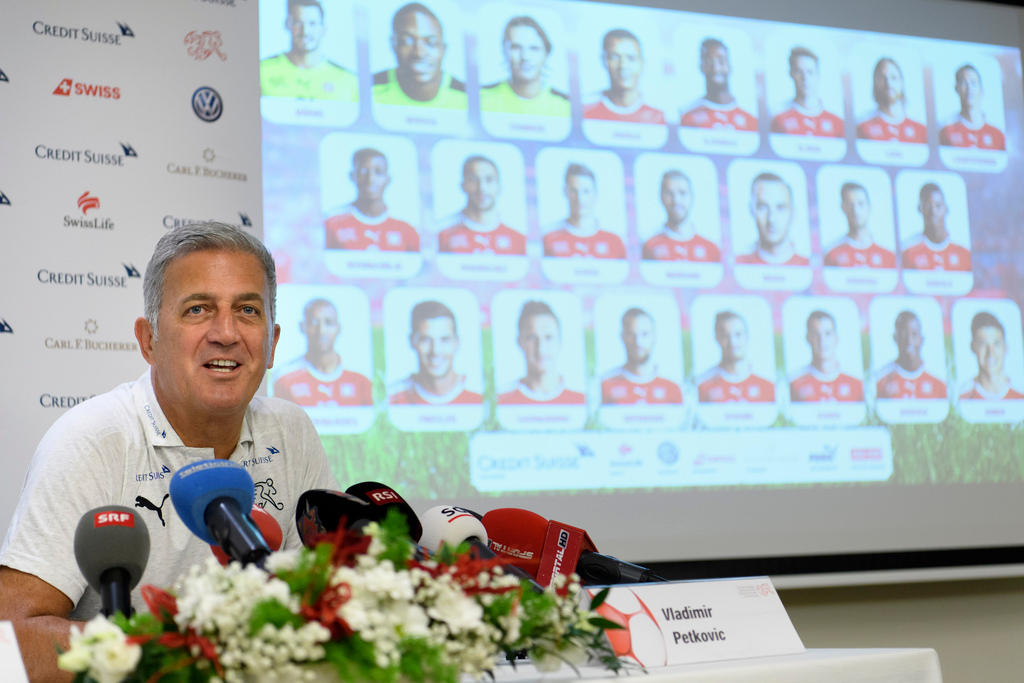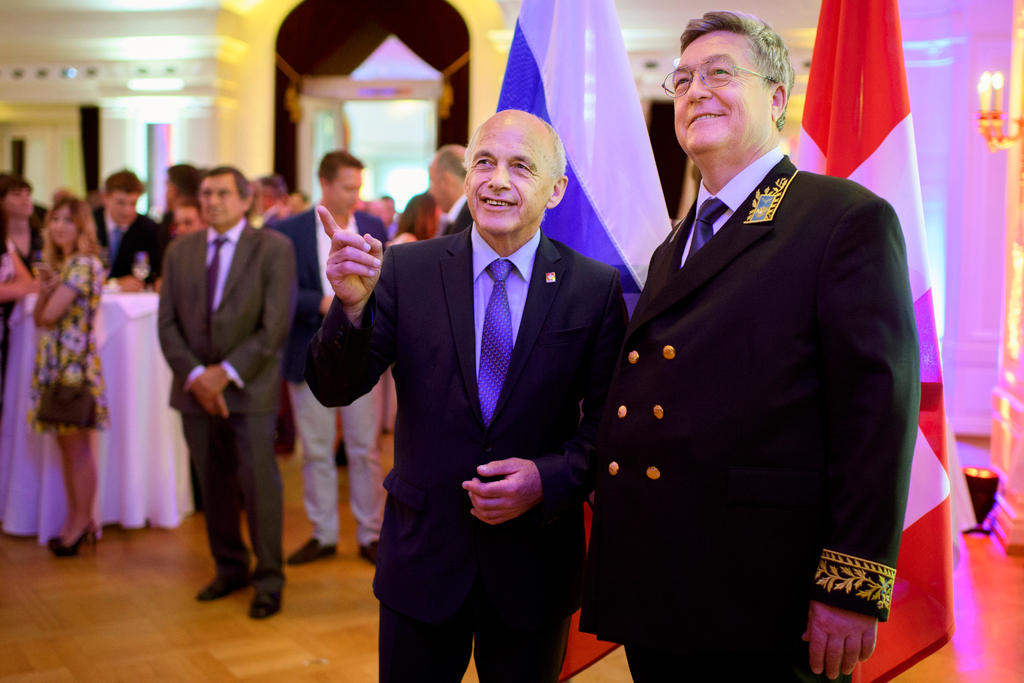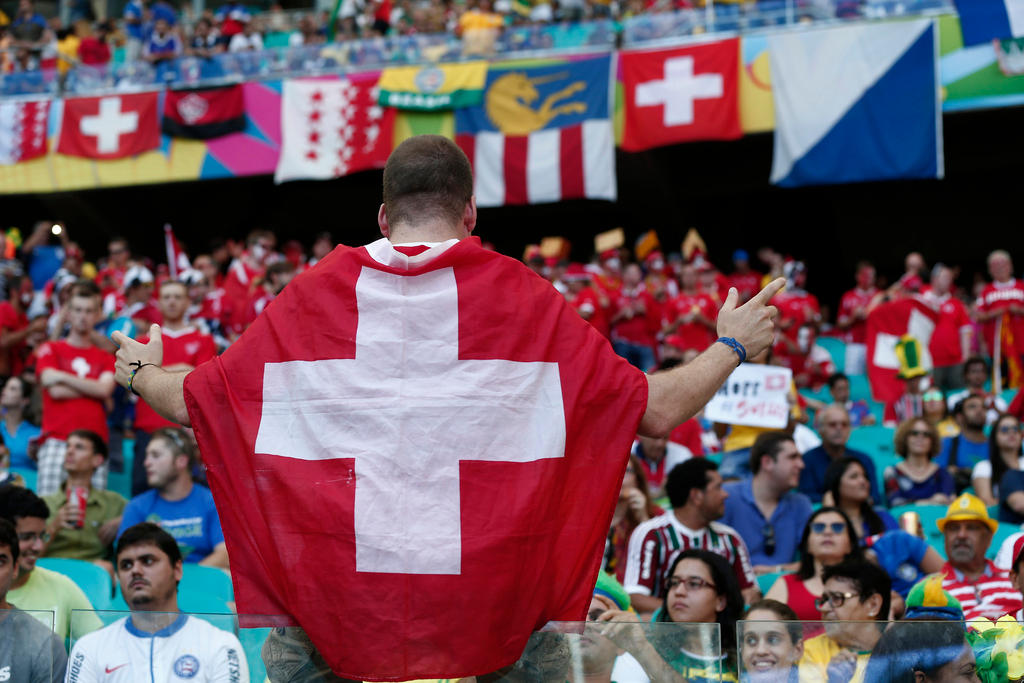Shaqiri and Xhaka as Quantum Phenomenon
Watching Xherdan Shaqiri and Granit Xhaka score for Switzerland and celebrate with an Albanian symbol has Daniel Warner asking whether it's possible to celebrate for more than one country in a competition limited to national teams.
Xerdan Shaqiri and Granit Xhaka scored Switzerland’s only goals in Friday’s 2-1 victory over Serbia. The precious victory placed the Swiss in an ideal position to advance to the next round of the prestigious tournament. But more than just football stars, the two demonstrated that what has been called “spooky action at a distance” can exist on the football pitch. They actualised one of the most counterintuitive aspects of quantum physics.
Both players are leaders of the Swiss side, but both have similar origins outside the Alpine country. Xhaka was born in Switzerland of Kosovar parents; Shaqiri was born in Kosovo before his parents moved to Switzerland. Although both are well integrated into Switzerland and are leaders of the Swiss side, both maintain close emotional ties to the tiny de facto state of Kosovo. The small Balkan entity, closely associated with Albania, has an ongoing conflict with its neighbour Serbia over territory and Serbia’s non-recognition of Kosovo’s independent status.
Thus the match Switzerland vs. Serbia had more than just sporting interest for the two. After each scored, they celebrated by making a hand gesture symbolising the eagle that appears on the Albanian flag. As Xhaka said after the match, “This is a special day for me. This is a victory for my family, for Switzerland, for Albania and for Kosovo.”
Indeed, Shaqiri had a Swiss flag on one of his boots and a Kosovo flag on the other. (He seems to have scored with the Swiss boot.)

While one can certainly understand the euphoria of winning for Switzerland and family, is it possible to celebrate for more than one country in a competition limited to national teams? Can one be part of more than one country at the same time?
This is where “spooky action at a distance” is relevant to what happened during the game. According to quantum mechanics, it is possible for a sub atomic particle to appear to be two entities at the same time. In other words, a particle can be in one place and simultaneously in another place while behaving as part of one entity.
Nottebohm Case
In the famous Nottebohm Case of 1955 before the International Court of Justice (ICJ), while the judges recognised that someone could be a citizen of more than one country, they determined that in the specific situation they were judging what was important was the “effective nationality” of the person in question. There could be sharing of citizenship, they ruled, but in the given situation under consideration one citizenship had to be more important than the other.
Following the ICJ’s reasoning, while Shaqiri and Xhaka were playing for the Swiss national team, it is quite possible for them to have strong emotional ties to Albania and Kosovo. From the football perspective, their effective nationality is Swiss despite their attachment to Albania and Kosovo.
Obviously, we cannot ask sub-atomic particles their emotional preferences for the two entities that share them. But we do note that sharing of identity is possible in the physical world, that binary either-or is limited and limiting. Following this logic and returning to the football players, the hyphen between Kosovar-Swiss, or whatever else one might be, is a possible alternative to a simplistic binary distinction such as merely Swiss or Kosovar.
Perfect mix?
Compare the comment by Swiss People’s Party right-wing parliamentarian Natalie Rickli; “I cannot honestly rejoice since the two goals were not scored for Switzerland but for Kosovo” with Xhaka’s uncle; “My nephews grew up in Switzerland with respect for the country and its culture. But they were educated in Albania with the love of family and Kosovo. Frankly, I would be incapable to say which is Swiss or Albanian for them. They are a perfect mix.”
Shaqiri and Xhaka scored monumental goals for the Swiss national team. That they celebrated as Swiss and Kosovars at the same time is quite understandable, especially in a match against Serbia. Whether or not their gestures were unduly provocative will be decided by international football officials. We can only hope that the officials are aware of quantum physics and the concept of shared identity.
The views expressed in this article are solely those of the author, and do not necessarily reflect the views of swissinfo.ch.
Opinion series
swissinfo.ch publishes op-ed articles by contributors writing on a wide range of topics – Swiss issues or those that impact Switzerland. The selection of articles presents a diversity of opinions designed to enrich the debate on the issues discussed.

In compliance with the JTI standards
More: SWI swissinfo.ch certified by the Journalism Trust Initiative













You can find an overview of ongoing debates with our journalists here . Please join us!
If you want to start a conversation about a topic raised in this article or want to report factual errors, email us at english@swissinfo.ch.